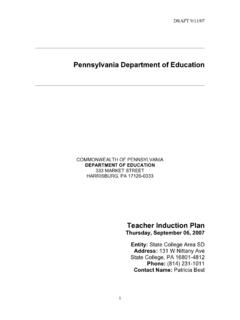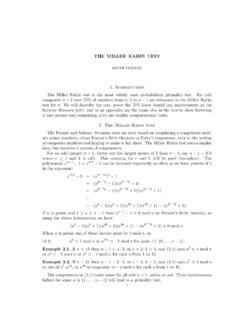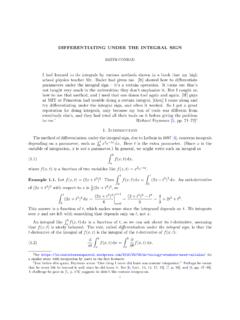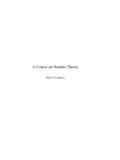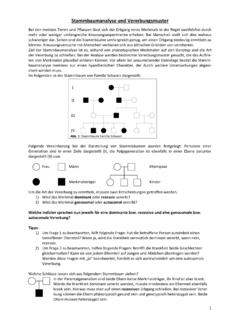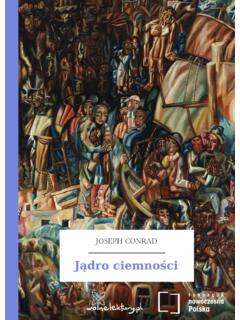Transcription of Achebe An Image of Africa Racism in Conrad's 'Heart of ...
1 Achebe , Chinua. "An Image of Africa : Racism in Conrad's 'Heart of Darkness'" MassachusettsReview. 18. 1977. Rpt. in Heart of Darkness, An Authoritative Text, background and SourcesCriticism. 1961. 3rd ed. Ed. Robert Kimbrough, London: W. W Norton and Co., 1988, the fall of 1974 I was walking one day from the English Department at the University ofMassachusetts to a parking lot. It was a fine autumn morning such as encouraged friendliness topassing strangers. Brisk youngsters were hurrying in all directions, many of them obviously freshmenin their first flush of enthusiasm.
2 An older man going the same way as I turned and remarked to mehow very young they came these days. I agreed. Then he asked me if I was a student too. I said no, Iwas a teacher. What did I teach? African literature. Now that was funny, he said, because he knew afellow who taught the same thing, or perhaps it was African history, in a certain Community Collegenot far from here. It always surprised him, he went on to say, because he never had thought of Africaas having that kind of stuff, you know. By this time I was walking much faster.
3 "Oh well," I heard himsay finally, behind me: "I guess I have to take your course to find out." A few weeks later I receivedtwo very touching letters from high school children in Yonkers, New York, who -- bless their teacher-- had just read Things Fall Apart . One of them was particularly happy to learn about the customs andsuperstitions of an African propose to draw from these rather trivial encounters rather heavy conclusions which at first sightmight seem somewhat out of proportion to them. But only, I hope, at first young fellow from Yonkers, perhaps partly on account of his age but I believe also for muchdeeper and more serious reasons, is obviously unaware that the life of his own tribesmen in Yonkers,New York, is full of odd customs and superstitions and, like everybody else in his culture, imaginesthat he needs a trip to Africa to encounter those other person being fully my own age could not be excused on the grounds of his years.
4 Ignorancemight be a more likely reason; but here again I believe that something more willful than a mere lackof information was at work. For did not that erudite British historian and Regius Professor at Oxford,Hugh Trevor Roper, also pronounce that African history did not exist?If there is something in these utterances more than youthful inexperience, more than a lack of factualknowledge, what is it? Quite simply it is the desire -- one might indeed say the need -- in Westernpsychology to set Africa up as a foil to Europe, as a place of negations at once remote and vaguelyfamiliar, in comparison with which Europe's own state of spiritual grace will be need is not new; which should relieve us all of considerable responsibility and perhaps make useven willing to look at this phenomenon dispassionately.
5 I have neither the wish nor the competenceto embark on the exercise with the tools of the social and biological sciences but more simply in themanner of a novelist responding to one famous book of European fiction: Joseph Conrad's Heart ofDarkness , which better than any other work that I know displays that Western desire and need whichI have just referred to. Of course there are whole libraries of books devoted to the same purpose butmost of them are so obvious and so crude that few people worry about them today.
6 conrad , on theother hand, is undoubtedly one of the great stylists of modern fiction and a good storyteller into thebargain. His contribution therefore falls automatically into a different class -- permanent literature -- Achebe : An Image of Africa : Racism in Conrad's "Heart of of 910/18/09 10:29 AMread and taught and constantly evaluated by serious academics. Heart of Darkness is indeed so securetoday that a leading conrad scholar has numbered it "among the half-dozen greatest short novels inthe English language.
7 " I will return to this critical opinion in due course because it may seriouslymodify my earlier suppositions about who may or may not be guilty in some of the matters I will of Darkness projects the Image of Africa as "the other world," the antithesis of Europe andtherefore of civilization, a place where man's vaunted intelligence and refinement are finally mockedby triumphant beastiality. The book opens on the River Thames, tranquil, resting, peacefully "at thedecline of day after ages of good service done to the race that peopled its banks.
8 " But the actual storywill take place on the River Congo, the very antithesis of the Thames. The River Congo is quitedecidedly not a River Emeritus. It has rendered no service and enjoys no old-age pension. We are toldthat "Going up that river was like traveling back to the earliest beginnings of the world."Is conrad saying then that these two rivers are very different, one good, the other bad? Yes, but that isnot the real point. It is not the differentness that worries conrad but the lurking hint of kinship, ofcommon ancestry.
9 For the Thames too "has been one of the dark places of the earth." It conquered itsdarkness, of course, and is now in daylight and at peace. But if it were to visit its primordial relative,the Congo, it would run the terrible risk of hearing grotesque echoes of its own forgotten darkness,and falling victim to an avenging recrudescence of the mindless frenzy of the first suggestive echoes comprise Conrad's famed evocation of the African atmosphere in Heart ofDarkness . In the final consideration his method amounts to no more than a steady, ponderous,fake-ritualistic repetition of two antithetical sentences, one about silence and the other about can inspect samples of this on pages 36 and 37 of the present edition: a) it was the stillness of animplacable force brooding over an inscrutable intention and b) The steamer toiled along slowly on theedge of a black and incomprehensible frenzy.
10 Of course there is a judicious change of adjective fromtime to time, so that instead of inscrutable, for example, you might have unspeakable, even plainmysterious, etc., eagle-eyed English critic F. R. Leavis drew attention long ago to Conrad's "adjectival insistenceupon inexpressible and incomprehensible mystery." That insistence must not be dismissed lightly, asmany conrad critics have tended to do, as a mere stylistic flaw; for it raises serious questions ofartistic good faith. When a writer while pretending to record scenes, incidents and their impact is inreality engaged in inducing hypnotic stupor in his readers through a bombardment of emotive wordsand other forms of trickery much more has to be at stake than stylistic felicity.



